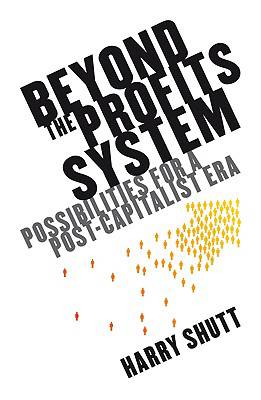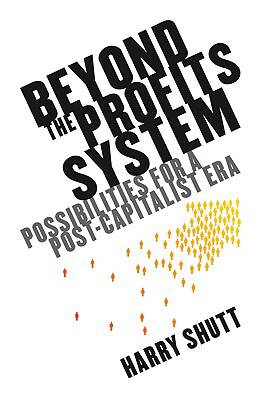
- Afhalen na 1 uur in een winkel met voorraad
- Gratis thuislevering in België vanaf € 30
- Ruim aanbod met 7 miljoen producten
- Afhalen na 1 uur in een winkel met voorraad
- Gratis thuislevering in België vanaf € 30
- Ruim aanbod met 7 miljoen producten
Zoeken
€ 195,45
+ 390 punten
Uitvoering
Omschrijving
Since 2008, we have found ourselves confronted by an historic financial holocaust that world leaders have struggled to come to terms with. All have willfully ignored its long-term, systemic causes and are thus unable to chart a way to survival. As explained by Harry Shutt - who was almost alone in foreseeing such a disaster in the 1990s (in The Trouble with Capitalism) their continued denial stems from a vested interest in maintaining a capitalist profits system which is not only as destructive as it was in the 1930s but as outmoded as feudalism was in 1789. Thus it can now only be sustained by an increasing reliance to official misinformation, massive criminal fraud and the ever greater dependence of private corporations on state subsidy.
This book makes clear why the desperate resort of Western governments to 'extraordinary measures' to try and avert economic collapse is bound to fail. It also forcefully demonstrates why our only hope of reversing the tide is to abandon the traditional economic logic of endlessly expanding production in favour of responding to the aspirations of ordinary people. Such a transformation, argues Shutt, would make possible the allocation of resources to more socially desirable ends, including the assurance of basic economic security for all as a right of citizenship.
This book makes clear why the desperate resort of Western governments to 'extraordinary measures' to try and avert economic collapse is bound to fail. It also forcefully demonstrates why our only hope of reversing the tide is to abandon the traditional economic logic of endlessly expanding production in favour of responding to the aspirations of ordinary people. Such a transformation, argues Shutt, would make possible the allocation of resources to more socially desirable ends, including the assurance of basic economic security for all as a right of citizenship.
Specificaties
Betrokkenen
- Auteur(s):
- Uitgeverij:
Inhoud
- Aantal bladzijden:
- 192
- Taal:
- Engels
Eigenschappen
- Productcode (EAN):
- 9781848134164
- Verschijningsdatum:
- 11/05/2010
- Uitvoering:
- Hardcover
- Formaat:
- Ongenaaid / garenloos gebonden
- Afmetingen:
- 130 mm x 201 mm
- Gewicht:
- 294 g

Alleen bij Standaard Boekhandel
+ 390 punten op je klantenkaart van Standaard Boekhandel
Beoordelingen
We publiceren alleen reviews die voldoen aan de voorwaarden voor reviews. Bekijk onze voorwaarden voor reviews.








